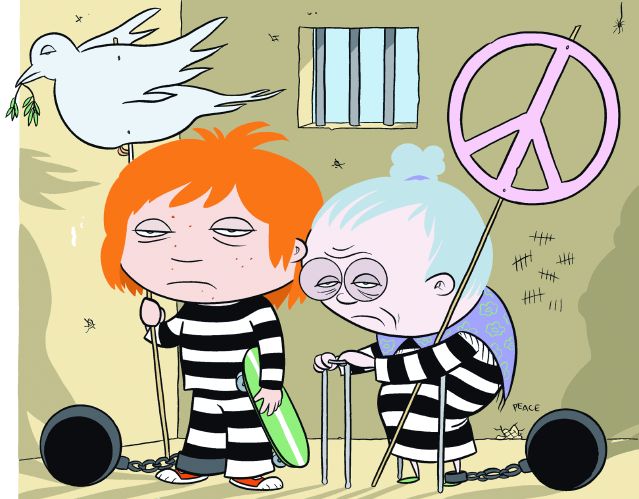Red Alert!
Peaceful, Anti-War Activism May Result In Prison Sentences For Nine New Mexicans After They Tried To Make Love, Not War, With Sen. Pete Domenici

Latest Article|September 3, 2020|Free
::Making Grown Men Cry Since 1992


